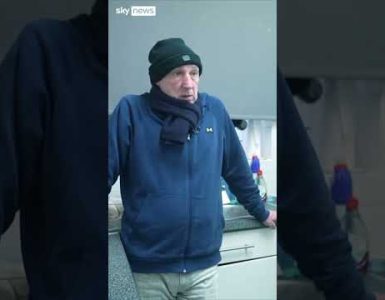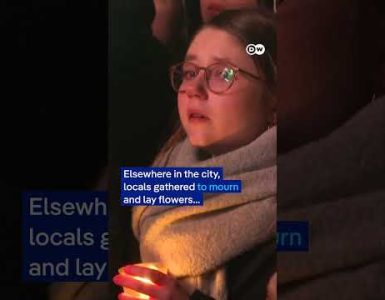Efforts to counter Russian disinformation are moving into overdrive in the remaining days before the European Parliament elections. In January, the German government said it had uncovered a coordinated Russian disinformation campaign on X, formerly Twitter. Before it was shut down, the campaign had distributed more than a million messages through fake accounts, pushing false or misleading narratives, such as that aid to war-torn Ukraine was neglecting local citizens.
Fact-checking organizations have detected a last-minute effort to overwhelm news outlets with requests to verify stories which @CheckfirstHQ has dubbed "OperationOverload." Tactics like this to distort facts and distract voters were anticipated ahead of polls opening to elect the 720 members of the European Parliament and many national leaders across Europe. DW’s own Fact Check team at https://www.dw.com/en/fact-check/t-56584214 is helping citizens educate themselves about how to avoid being duped by disinformation as they cast their ballots.
By spreading such messages in large numbers on online platforms, some experts critical of these so-called “hybrid warfare” networks argue that Russia aims to maximize its visibility and foster a sense of legitimacy. The alleged goal is to widen social divides, fuel anger, and sow distrust in democratic processes and the media. A multi-pronged approach is needed to counter hybrid warfare, experts agree. Countries must ensure that their critical infrastructure, including voting technology, is adequately protected against cyberattacks.
#hybridwarfare #disinformation #euparliament
Subscribe: https://www.youtube.com/user/deutschewelleenglish?sub_confirmation=1
For more news go to: http://www.dw.com/en/
Follow DW on social media:
►Facebook: https://www.facebook.com/deutschewellenews/
►Twitter: https://twitter.com/dwnews
►Instagram: https://www.instagram.com/dwnews
►Twitch: https://www.twitch.tv/dwnews_hangout
Für Videos in deutscher Sprache besuchen Sie: https://www.youtube.com/dwdeutsch








erKFMRSAbiGPjv